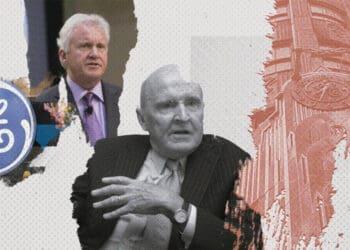This article was republished with permission from Tom Fox’s FCPA Compliance and Ethics Blog.
“Each case turns on its own facts.” How many times have you heard a representative of the Department of Justice (DOJ) or Securities and Exchange Commission (SEC) make that statement at a conference or other public event? The reality is that this is true and, in the context of Foreign Corrupt Practices Act (FCPA), both regulators look at the facts and circumstances around each case in making a wide range of assessments. While this is frustrating to business types, as a lawyer I find it to be not only an appropriate analysis, but also an accurate way in which to look at things.
Late in 2013 the DOJ issued its only Opinion Release, that being Opinion Release 13-01. One of the things that this Opinion Release stands for is that each fact scenario presented under the FCPA must be evaluated on its own facts. While this maxim is certainly true, I believe that the Opinion Release goes further and provides significant information to the compliance practitioner for charitable donations going forward.
Facts
The Requestor is a partner with a U.S. law firm which represents Foreign Country A in various international arbitrations. This business relationship has enabled the law firm to bill Foreign Country A for more than $2 million throughout the past 18 months; it is further anticipated that in 2014, the fees on matters for Foreign Country A will exceed $2 million. During the course of representation, the Requestor has become a personal friend of Foreign Official, who works in Foreign Country A’s Office of the Attorney General (the OAG). This Foreign Official’s daughter suffers from a severe medical condition that cannot effectively be treated in Foreign Country A or anywhere in the region. The physicians treating Foreign Official’s daughter have recommended that she receive inpatient care at a specialized facility located in Foreign Country B. Requestor reports that the treatment will cost between approximately $13,500 and $20,500 and that Foreign Official lacks financial means to pay for this treatment for his daughter. The Requestor has proposed to pay the medical expenses of the daughter of this foreign office.
Representations
The Requestor made the following representations in submitting the request for an Opinion Release.
- The Requestor’s intention in paying for the medical treatment of Foreign Official’s daughter is purely humanitarian, with no intent to influence the decision of any foreign official in Foreign Country A with regard to engaging the services of the Law Firm, Requestor or any third person.
- The funds used to pay for the medical treatment will be Requestor’s own personal funds. The Requestor will neither seek nor receive reimbursement from the Law Firm for such payments.
- The Requestor will make all payments directly to the facility where Foreign Official’s daughter will receive treatment in Foreign Country B. Foreign Official will pay for the costs of his daughter’s related travel.
- Foreign Country A is expected to retain the Law Firm to work on one new matter in the near future. Requestor is presently unaware of any additional, potential matters as to which Foreign Country A might retain the Law Firm. However, if such a matter develops, Requestor anticipates that Foreign Country A would likely retain the Law Firm given its successful track record and their strong relationship.
- Under the law for Foreign Country A, any government agency, such as the OAG, that hires an outside law firm must publicly publish a reasoned decision justifying the engagement. It is a crime punishable by imprisonment under the penal code of Foreign Country A for any civil servant or public employee to engage in corrupt behavior in connection with public contracting.
In addition to the representations made by the Requestor, there was also information presented showing that the Foreign Official and Requestor have discussed this matter transparently with their respective employers. Both the government of Foreign Country A and the leadership of the Law Firm have expressly indicated that they have no objection to the proposed payment of medical expenses. Additionally, the Requestor has provided a certified letter from the Attorney General of Foreign Country A that represents the following:
- The decision by the Requestor to pay for or not to pay for this medical treatment will have no impact on any current or future decisions of the OAG in deciding on the hiring of international legal counsel.
- In the opinion of Foreign Country A’s Attorney General, the payment of medical expenses for Foreign Official’s daughter under these circumstances would not violate any provision of the laws of Foreign Country A.
DOJ Analysis
In its analysis, the DOJ noted that “a person may violate the FCPA by making a payment or gift to a foreign official’s family member as an indirect way of corruptly influencing that foreign official.” See United States v. Liebo, 923 F.2d 1308, 1311 (8th Cir. 1991). However, “the FCPA does not per se prohibit business relationships with, or payments to, foreign officials.” FCPA Opinion Release 10-03 at 3 (Sept. 1, 2010). Rather “the Department typically looks to determine whether there are any indicia of corrupt intent, whether the arrangement is transparent to the foreign government and the general public, whether the arrangement is in conformity with local law and whether there are safeguards to prevent the foreign official from improperly using his or her position to steer business to or otherwise assist the company, for example through a policy of recusal.”
But I found the meat of the analysis in the following line of the Opinion Release: “the facts represented suggest an absence of corrupt intent and provide adequate assurances that the proposed benefit to Foreign Official’s daughter will have no impact on Requestor’s or Requestor’s Law Firm’s present or future business with Foreign Country A.”
Discussion
This analysis was based on several factors, which are worth highlighting:
- No role in obtaining or retaining business – The Foreign Official involved does not play any role in the decision to award Foreign Country A’s legal business to Law Firm.
- Full transparency – Both the Requestor and Foreign Official informed their respective employers of the proposed gift and neither has objected.
- The gift is not illegal under local law – The Attorney General of Foreign Country A has expressly stated that the proposed gift is not illegal under Foreign Country A’s laws. This is further reinforced by Foreign Country A’s public contracting laws, which require transparent reasoning in contracting for legal work and criminally punish corrupt behavior.
- Direct payment to third-party provider – The Requestor will pay the medical provider directly, ensuring that the payments will not be improperly diverted to Foreign Official.
I believe that Opinion Release 13-01 demonstrates once again that there is significant room for creative lawyering in the realm of FCPA compliance. Obviously the DOJ responded favorably by its final decision that it would not prosecute under the facts presented to it. For the compliance practitioner, there are several key takeaways beyond simply noting that you are limited only by your legal imagination. First and foremost is transparency. Both the Requestor and Foreign Official openly discussed this issue with their employers and superiors. One or both of them went to the Attorney General of the country in question and sought an opinion on the legality of the payment of medical expenses so there was visibility at the highest levels of the Foreign Country’s government in addition to confirmation that the gift was in fact legal under the laws of the country involved. Next is that the Foreign Official in question did not have decision-making authority over the Law Firm obtaining or retaining business. Finally, the direct payment to the third-party provider is always a critical element that should not be overlooked.
I know, understand and appreciate that this Opinion Release is limited to its facts and circumstances, but it gives the compliance practitioner some excellent guidance on how to think through charitable donations under the FCPA.
This publication contains general information only and is based on the experiences and research of the author. The author is not, by means of this publication, rendering business advice, legal advice or other professional advice or services. This publication is not a substitute for such legal advice or services, nor should it be used as a basis for any decision or action that may affect your business. Before making any decision or taking any action that may affect your business, you should consult a qualified legal advisor. The author, his affiliates and related entities shall not be responsible for any loss sustained by any person or entity that relies on this publication. The author gives his permission to link, post, distribute or reference this article for any lawful purpose, provided attribution is made to the author. The author can be reached at tfox@tfoxlaw.com.



 Thomas Fox has practiced law in Houston for 25 years. He is now assisting companies with FCPA compliance, risk management and international transactions.
He was most recently the General Counsel at Drilling Controls, Inc., a worldwide oilfield manufacturing and service company. He was previously Division Counsel with Halliburton Energy Services, Inc. where he supported Halliburton’s software division and its downhole division, which included the logging, directional drilling and drill bit business units.
Tom attended undergraduate school at the University of Texas, graduate school at Michigan State University and law school at the University of Michigan.
Tom writes and speaks nationally and internationally on a wide variety of topics, ranging from FCPA compliance, indemnities and other forms of risk management for a worldwide energy practice, tax issues faced by multi-national US companies, insurance coverage issues and protection of trade secrets.
Thomas Fox can be contacted via email at tfox@tfoxlaw.com or through his website
Thomas Fox has practiced law in Houston for 25 years. He is now assisting companies with FCPA compliance, risk management and international transactions.
He was most recently the General Counsel at Drilling Controls, Inc., a worldwide oilfield manufacturing and service company. He was previously Division Counsel with Halliburton Energy Services, Inc. where he supported Halliburton’s software division and its downhole division, which included the logging, directional drilling and drill bit business units.
Tom attended undergraduate school at the University of Texas, graduate school at Michigan State University and law school at the University of Michigan.
Tom writes and speaks nationally and internationally on a wide variety of topics, ranging from FCPA compliance, indemnities and other forms of risk management for a worldwide energy practice, tax issues faced by multi-national US companies, insurance coverage issues and protection of trade secrets.
Thomas Fox can be contacted via email at tfox@tfoxlaw.com or through his website 








